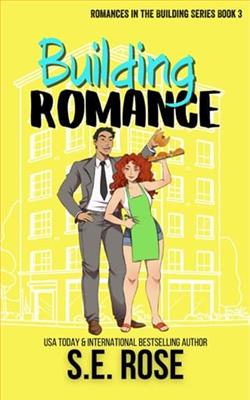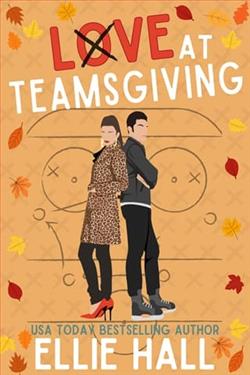Page 73 of Lunar Park
“I’m scared.” Sarah tightly hugged the Terby.
“Of what, honey?” I asked, about to move closer to her, even though the presence of the Terby kept me at a distance.
“Are there monsters in our house, Daddy?”
This was Robby’s cue to move away from the computer—the moonscape was now pulsing from the screen—and his confidence that I would become locked in a conversation with his sister relaxed him enough that he sat back down on the floor and recrossed his legs and resumed playing the video game.
“No, no . . .” I shivered as my mind flashed on the rush of images I had dreamt since Halloween. “Why do you ask that, honey?”
“I think there are monsters in the house.” She said this in a thick, drugged voice while hugging the doll.
I wasn’t aware I had said “Well, maybe sometimes, honey, but—” until her face crumpled and suddenly she burst into tears.
“Honey, no, no, no, but they’re not real, honey. They’re make-believe. They can’t hurt you.” I said this even as my eyes took in the black doll in her arms and all the things I knew it was capable of, and then I noticed that the doll didn’t have claws anymore. They had grown, and warped; they were talons now, and they were stained brown. I began formulating plans to get rid of the thing as soon as possible.
Sarah somehow knew that there were monsters in the house—because she now lived in the same house that I did—and she knew that there was nothing I could do about it. She understood that I couldn’t protect her. And at that point I realized the grim fact that as hard as you try, you can hide the truth from children for only an indefinite period, and even if you do tell them the truth, and lay out the facts for them honestly and completely, they will still resent you for it. Sarah’s spasm of crying ended as quickly as it began when the Terby suddenly gurgled and rotated its head toward me, almost as if it didn’t want this particular conversation to continue. I knew Sarah had somehow activated the doll but I had to clench my fist to keep from crying out and moving away, because it seemed so intently to be listening to us. Sarah smiled miserably and held the doll’s grotesque beak (the beak that nibbled flowers at midnight and gutted the squirrels that had been found strewn across the deck—but it was just a matrix of sensors and chips, right?) to her ear as if it had asked her to. She cradled the thing tenderly, with such uncommon gentleness that with any other toy it would have moved me, but at the sight of this thing my stomach dropped yet again. And then Sarah looked up and whispered hoarsely, “He says his real name is Martin.”
(“Grandpa talked to me . . .”)
“Oh . . . yeah?” I whispered back, my throat constricted.
“He told me to name him that.” She kept whispering.
I could do nothing but stare at the thing. From outside, as if on cue, we could hear Victor barking, and then he stopped.
“Is Terby alive, Daddy?”
(Go ahead, look at the scab on your palm. It had gone for the wrong hand, Bret. It was aiming for the hand with the gun in it, but it bit the wrong hand.)
“Why?” I asked hesitantly. “Do you think he is?” My voice was quavering.
She held the doll up to her ear and listened carefully to it and then she looked back up at me.
“He says he knows who you are.”
This forced me to speak up quickly. “Terby’s not real, honey. It’s not a real pet. It’s not alive.” I was intensely aware that I was still glaring at the thing, shaking my head slowly back and forth as if consoling myself.
Sarah held the doll up to her ear once again as if it asked her to.
I restrained myself from grabbing it away from her (I could smell its rotten scent) as she sat up to listen more carefully to what the doll was telling her. And then she nodded and looked back up at me.
“Terby says not in a human way but”—and now she giggled—“in a Terby way.”
She clutched the thing, rocking back and forth, delighted.
I said nothing and looked to Robby for help, but he was lost in the video game or pretending to be, and over the sounds of gunfire and groans I could hear Marta’s car pulling out of the driveway.
“Terby knows things,” Sarah whispered.
I kept swallowing. “What . . . things?”
“Everything he wants to know,” she said simply.
“Honey, it’s time for you to go to sleep,” I said, and then, looking over at Robby, “And I want you to turn that off and go to bed too, Robby. It’s late.”
“You don’t need to worry about me getting enough sleep,” he muttered.















